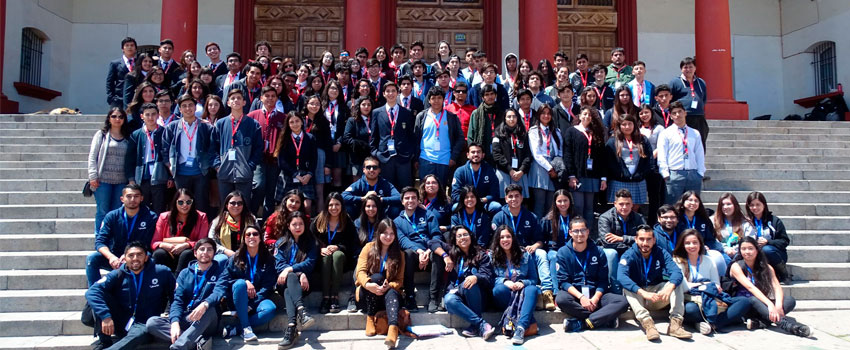
The conferences were held between October 12 and 15 at the Gabriela Mistral High School in La Serena, and are currently coordinated by the "Student Attraction, Retention and Accompaniment" subunit of the Integrated Pedagogy Management Unit (UGIP).
More than one hundred fourth-year high school students arrived from the regions of Atacama, Coquimbo and Valparaíso to the facilities of the University of La Serena, to participate in the JOMAT ULS 2018 Pre-University and Vocational Mathematics Conference Camp, an initiative that was born this year. 2012 and is headed by Professor Diego Contreras.
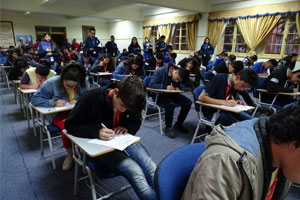 The sessions began last Friday with an inaugural ceremony, attended by authorities, teachers, student monitors from the institution and school teams from the participating educational establishments.
The sessions began last Friday with an inaugural ceremony, attended by authorities, teachers, student monitors from the institution and school teams from the participating educational establishments.
“In this seventh version they will be able to meet and get to know each other, enter university classrooms and be aware that many of you, depending on your choice, will be members of this institution next year. The University has a commitment to JOMAT, because JOMAT has a great commitment to the University and to regional and national education”, pointed out on the occasion the Academic Vice Chancellor, Dr. Jorge Catalán, who also highlighted the work carried out by the creators and organizers of the initiative.
For their part, the students Cristopher Gallardo (Pedagogy in Mathematics and Computing) and Ángela Rojo (Chemistry), who participated in the previous version as Jomatino students, provided some words of motivation, calling on the schoolchildren to enjoy the experience by focusing in learning and sharing with their peers.
On the occasion, the talk “Mathematics, the queen of sciences” by Mg. Erick de la Barra, who had the purpose of introducing and motivating those present towards mathematics.
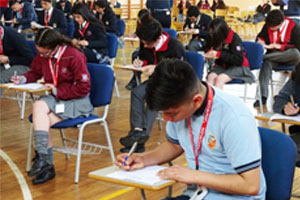 Conferences and activities
Conferences and activities
This year there were ten participating teams, among them, the representatives of the Pedro Troncoso Machuca High School (Vallenar), María Educa School (La Serena), Bicentennial IAC State of Israel High School (Coquimbo), Parish School (Andacollo), Samuel Román Rojas High School ( Combarbalá), Nicolás Federico Lohse Vargas High School (Los Vilos), Pedro Rodríguez Caviedes High School (llapel), Mary Graham Bicentennial High School (Villa Alemana) and José Cortés Brown High School (Viña del Mar). In addition, for the first time, a group of students from the I Want to Be an Education Professional Program, managed through the UGIP, joined.
In its seventh version, and faithful to its tradition, the initiative contemplated the realization of various academic activities led by students of the Pedagogy in Mathematics and Computing, and Ped. in Math and Physics, as well as science workshops offered by Ped students. in Biology and Natural Sciences. Likewise, the students were able to participate in sports, recreational and vocational events, the latter directed by the psychologist Andrea Hoces, an occasion in which they worked as a group on the different learning styles.
The point of greatest intensity was obtained by the long-awaited Olympics, which after a hard-fought competition, left as winners the José Cortés Brown High School (1st place), the María Educa School (2nd Place) and the IAC Estado de Israel Bicentennial High School (3rd place). place). Once the day was over, the students were grateful for being able to participate in the gratifying instance, hoping to be able to join as monitors in future versions.
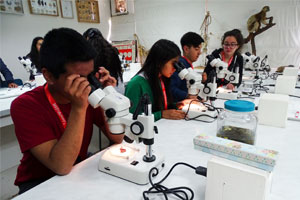 For the student Fabián Toro, from the Mary Graham Bicentennial High School, this experience allowed him to "have a good time and also learn mathematics in a different way, leaving the traditional classroom, because we participate in activities that are more recreational and do not involve only common learning”, he stated. A similar opinion was expressed by the student Danae Cuello, from the María Educa School, who stated that "it is exciting because we are getting closer to university life every day and living this experience brings us even closer to what we are going to face in the coming years."
For the student Fabián Toro, from the Mary Graham Bicentennial High School, this experience allowed him to "have a good time and also learn mathematics in a different way, leaving the traditional classroom, because we participate in activities that are more recreational and do not involve only common learning”, he stated. A similar opinion was expressed by the student Danae Cuello, from the María Educa School, who stated that "it is exciting because we are getting closer to university life every day and living this experience brings us even closer to what we are going to face in the coming years."
In this way, there are already close to a thousand students in total who have had the opportunity to make a living from this great project, which arose in the hands of the students of the school themselves as a way to promote mathematics and science. an unconventional way.
“The success of each JOMAT camp does not depend only on the organization, the tutors or monitors, it mainly depends on the willingness of the participating students in each of the activities prepared; This is how the group of the 2018 generation made possible the realization of one of the most successful versions carried out, and we hope to be able to count on these students again in future participating editions already as university students of our house of studies”, emphasized the general director of the JOMAT ULS Program, Professor Diego Contreras.
Source: Unit for the Integrated Management of Pedagogies (UGIP) | PMI FIP ULS1501 – CM ULS 1755
See photo gallery
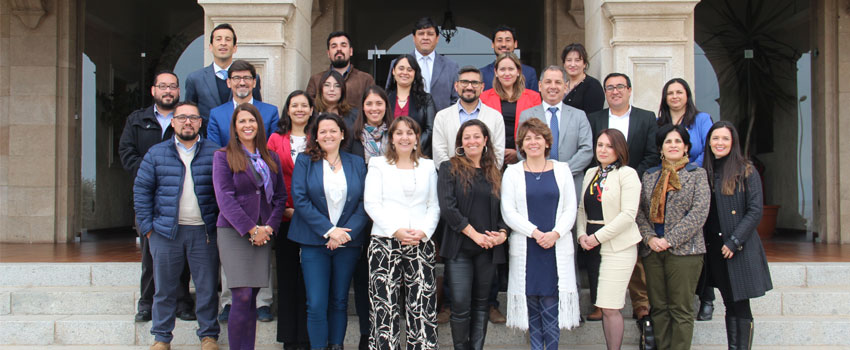


 The sessions began last Friday with an inaugural ceremony, attended by authorities, teachers, student monitors from the institution and school teams from the participating educational establishments.
The sessions began last Friday with an inaugural ceremony, attended by authorities, teachers, student monitors from the institution and school teams from the participating educational establishments. Conferences and activities
Conferences and activities For the student Fabián Toro, from the Mary Graham Bicentennial High School, this experience allowed him to "have a good time and also learn mathematics in a different way, leaving the traditional classroom, because we participate in activities that are more recreational and do not involve only common learning”, he stated. A similar opinion was expressed by the student Danae Cuello, from the María Educa School, who stated that "it is exciting because we are getting closer to university life every day and living this experience brings us even closer to what we are going to face in the coming years."
For the student Fabián Toro, from the Mary Graham Bicentennial High School, this experience allowed him to "have a good time and also learn mathematics in a different way, leaving the traditional classroom, because we participate in activities that are more recreational and do not involve only common learning”, he stated. A similar opinion was expressed by the student Danae Cuello, from the María Educa School, who stated that "it is exciting because we are getting closer to university life every day and living this experience brings us even closer to what we are going to face in the coming years."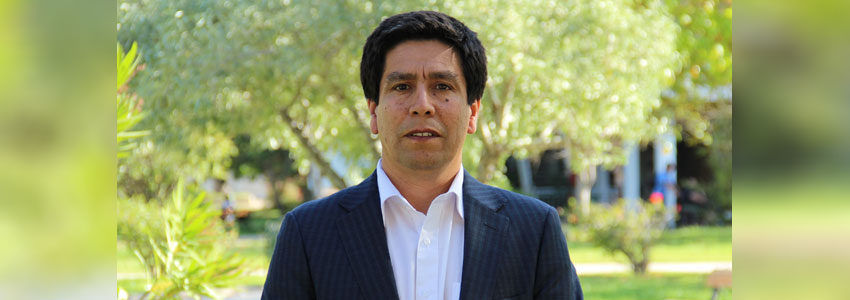
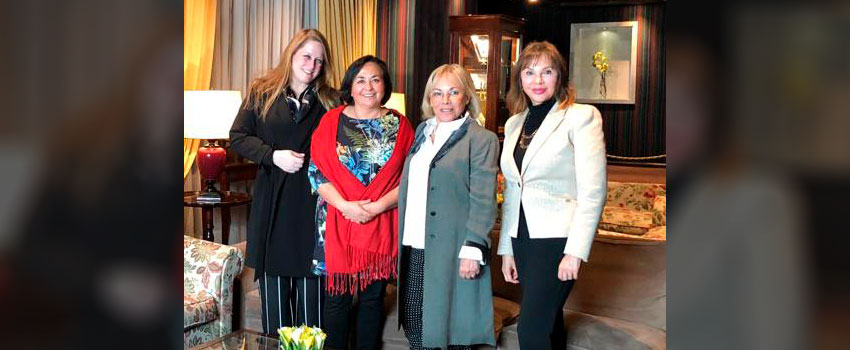
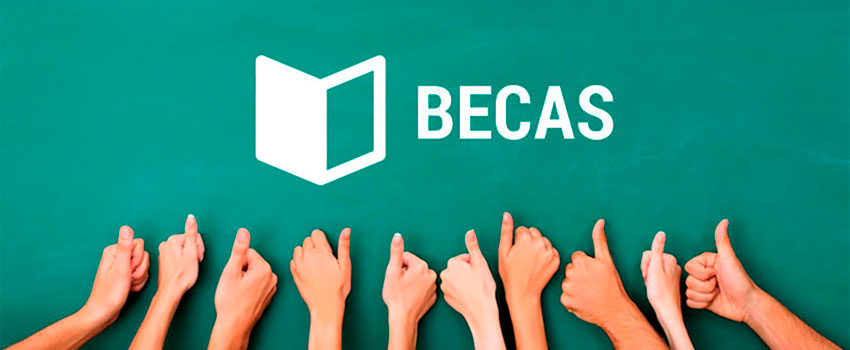
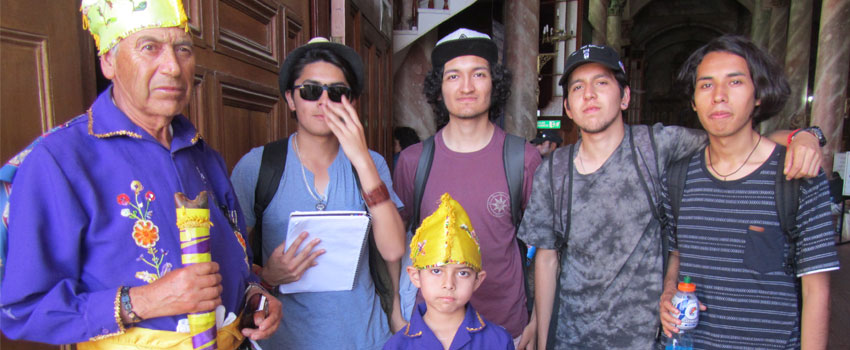
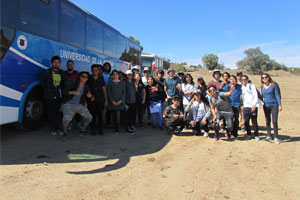 As explained by the academic from the Department of Music of the ULS, Lina Barrientos, the Fiesta Chica de Nuestra Señora del Rosario de Andacollo is “organized by Jaime Guerrero, Cacique General of Religious Dances, where once again, perhaps before 1584, uninterruptedly, devotees will fulfill the promises and/or thanks to the chinita, as the Virgin is affectionately distinguished. Chinita comes from the Chinese Quechua word that connotes server.
As explained by the academic from the Department of Music of the ULS, Lina Barrientos, the Fiesta Chica de Nuestra Señora del Rosario de Andacollo is “organized by Jaime Guerrero, Cacique General of Religious Dances, where once again, perhaps before 1584, uninterruptedly, devotees will fulfill the promises and/or thanks to the chinita, as the Virgin is affectionately distinguished. Chinita comes from the Chinese Quechua word that connotes server.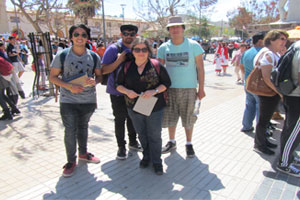 As in the pedagogical professional training of the Musical Education Pedagogy student body, the sound-musical observation of their own environment is considered in relation to the context in which it is present, the group of first-year students made records of the observations based on a guideline and previous preparation in the classroom.
As in the pedagogical professional training of the Musical Education Pedagogy student body, the sound-musical observation of their own environment is considered in relation to the context in which it is present, the group of first-year students made records of the observations based on a guideline and previous preparation in the classroom.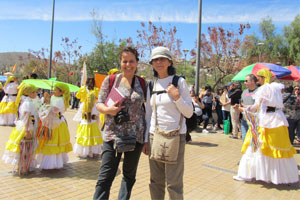 In addition to the teaching aspect of this trip to Andacollo, the ethnomusicological aspect was also present, related to the ongoing project: Turbans and Dances of Andacollo in its music. Aesthetics and emotions of a popular faith, by teachers Daniela Banderas and Lina Barrientos, a project financed by the Fund for the Promotion of National Music of the MCAP, sponsored by DIDULS and the Department of Music of the state campus, a study that also includes with the consent of the General Chief and the heads of Dances involved in the study.
In addition to the teaching aspect of this trip to Andacollo, the ethnomusicological aspect was also present, related to the ongoing project: Turbans and Dances of Andacollo in its music. Aesthetics and emotions of a popular faith, by teachers Daniela Banderas and Lina Barrientos, a project financed by the Fund for the Promotion of National Music of the MCAP, sponsored by DIDULS and the Department of Music of the state campus, a study that also includes with the consent of the General Chief and the heads of Dances involved in the study.